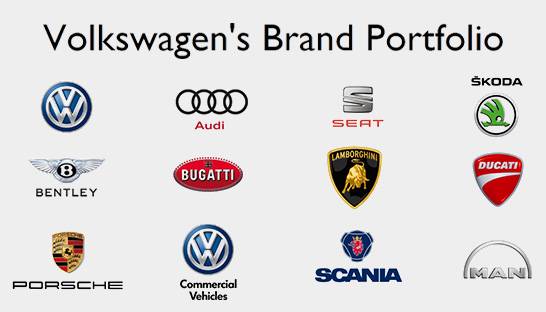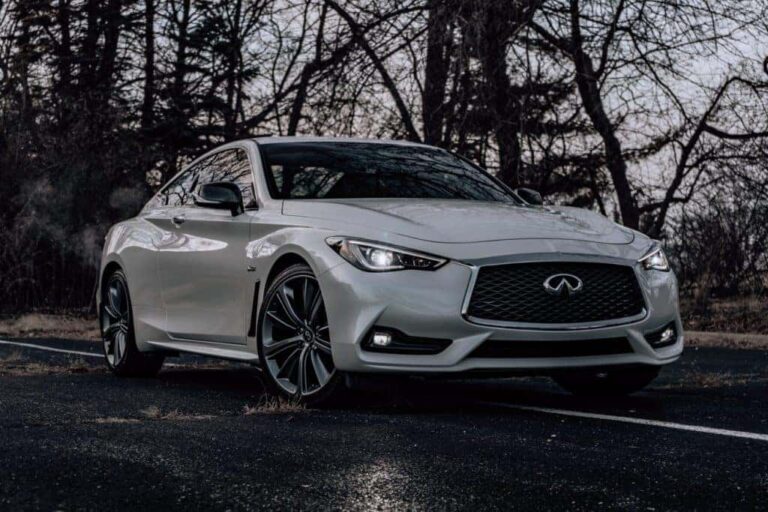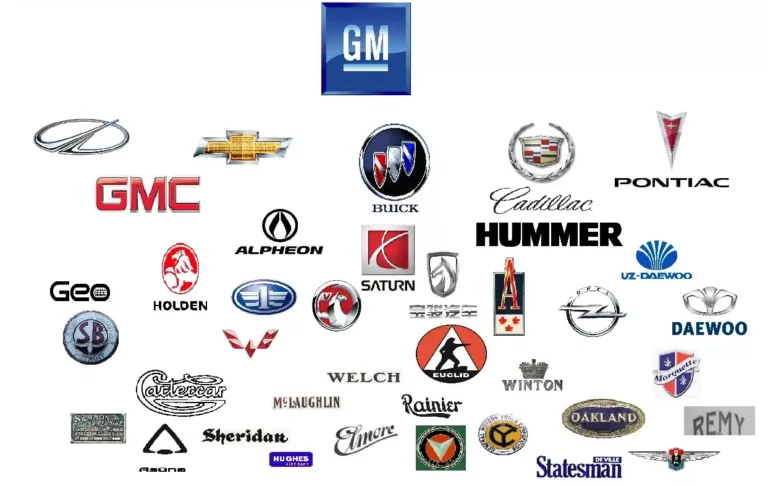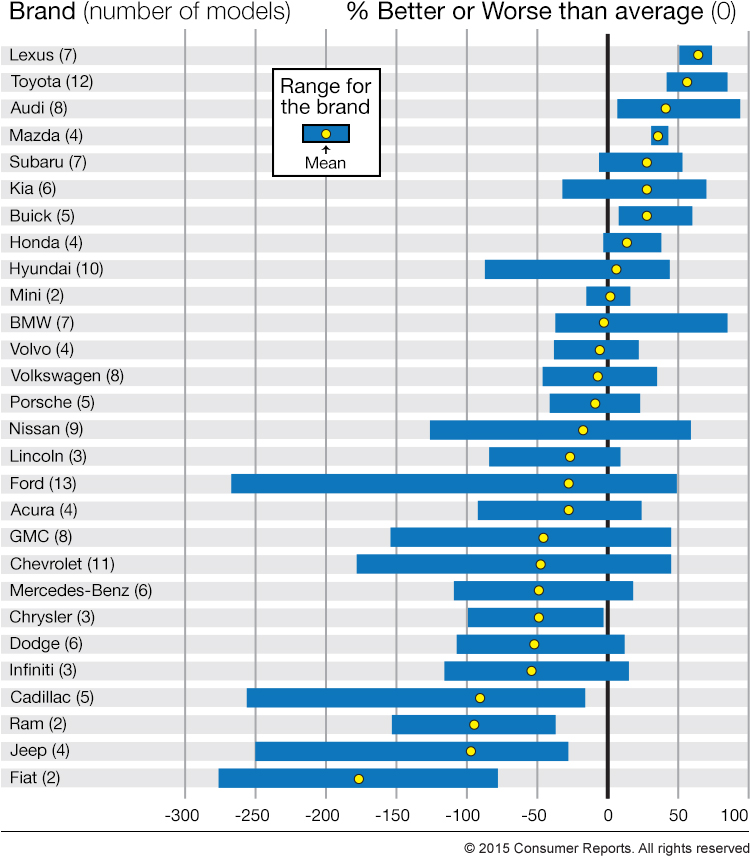Car Brands Owned By VW: Unpacking the Automotive Giant’s Diverse Portfolio
Car Brands Owned By VW: Unpacking the Automotive Giant’s Diverse Portfolio cars.truckstrend.com
The automotive industry is a vast, complex ecosystem, and at its heart stands the Volkswagen Group, a titan whose reach extends across a remarkable array of beloved car brands. Far from being just the maker of the iconic Beetle or the reliable Golf, Volkswagen AG (VW) has strategically built an empire that encompasses everything from budget-friendly family cars to ultra-luxury hypercars, high-performance sports machines, and even heavy commercial vehicles and motorcycles. Understanding which brands fall under the VW umbrella is not just a trivia exercise; it offers crucial insights into global market strategies, technological innovation, and the sheer scale of modern manufacturing. This comprehensive guide will delve into the sprawling network of brands owned by Volkswagen, exploring the strategic rationale behind their acquisitions, the benefits of this multi-brand approach, and what it means for consumers and the future of mobility.
The Genesis of a Giant: Volkswagen’s Expansion Strategy
Car Brands Owned By VW: Unpacking the Automotive Giant’s Diverse Portfolio
The story of Volkswagen Group’s expansion is one of ambition, strategic foresight, and an astute understanding of market dynamics. Founded in 1937 with the goal of producing an affordable "people’s car," VW’s initial focus was on mass production and accessibility. However, the post-war era and subsequent decades saw the company embark on a relentless journey of acquisition and diversification.
This expansion wasn’t haphazard. It was driven by several key objectives:
- Market Diversification: To capture a wider range of customer segments, from entry-level buyers to ultra-wealthy connoisseurs.
- Geographic Reach: To establish a stronger presence in various global markets, each with its unique preferences and economic conditions.
- Economies of Scale: To leverage shared platforms, components, and R&D across multiple brands, significantly reducing costs and accelerating development cycles.
- Technological Leadership: To pool engineering expertise and resources, fostering innovation and maintaining a competitive edge.

The acquisition spree began in earnest in the late 1960s with Audi, followed by SEAT and Škoda, laying the groundwork for the passenger car segment. Later, iconic luxury and performance brands like Bentley, Lamborghini, and Bugatti were added, propelling VW into the elite echelons of the automotive world. The acquisition of commercial vehicle giants Scania and MAN, and even motorcycle manufacturer Ducati, further solidified its position as a diversified mobility provider. This strategic growth has transformed Volkswagen from a single-brand entity into a multi-faceted conglomerate, capable of addressing nearly every segment of the transportation market.
The Pillars of the Empire: Core Passenger Car Brands
The backbone of the Volkswagen Group’s passenger car sales and innovation rests on its core brands, each meticulously positioned to cater to specific market demands.
Volkswagen (VW)
The namesake brand remains the heart of the group, embodying its original mission of providing reliable, practical, and technologically advanced vehicles for the masses. VW models like the Golf, Passat, and Tiguan are global bestsellers, known for their solid engineering, comfortable interiors, and user-friendly technology. The brand is currently leading the group’s charge into electric mobility with its ID. family of vehicles.

Audi
Acquired in 1965, Audi transformed under VW’s stewardship from a struggling brand into a premium powerhouse. Known for its "Vorsprung durch Technik" (Progress through Technology), Audi excels in sophisticated design, advanced quattro all-wheel-drive systems, luxurious interiors, and cutting-edge infotainment. It serves as a crucial profit driver and a technological innovator within the group, often pioneering features that later trickle down to other brands.
SEAT
The Spanish brand, acquired in 1986, injects a youthful, sporty, and passionate flair into the group’s portfolio. SEAT models, such as the Leon and Ateca, are characterized by their dynamic styling, engaging driving experience, and Mediterranean charm. It primarily targets younger demographics and competes strongly in the European market, often sharing platforms and engines with VW and Škoda but with a distinct character.
Škoda

Once a state-owned manufacturer from Czechoslovakia, Škoda’s acquisition by VW in 1991 is considered a masterclass in brand revitalization. Under VW’s guidance, Škoda has shed its utilitarian image to become a highly respected brand known for its "Simply Clever" solutions, exceptional value, spacious interiors, and robust reliability. Škoda models like the Octavia and Superb offer premium features at competitive price points, making them popular choices across Europe and emerging markets.
Luxury and Performance Royalty
Beyond the mainstream, the Volkswagen Group boasts an enviable collection of some of the world’s most prestigious and high-performance automotive brands.
Porsche
A jewel in the crown, Porsche joined the VW Group through a complex series of events that ultimately saw the sports car icon become a dominant force. Known for its legendary sports cars like the 911, Boxster, and Cayman, as well as highly successful SUVs like the Cayenne and Macan, Porsche embodies performance, precision engineering, and an unparalleled driving experience. It is consistently one of the most profitable brands within the entire group.
Lamborghini
The epitome of Italian exoticism, Lamborghini, acquired in 1998, represents extreme performance, audacious design, and uncompromising exclusivity. Its V10 and V12-powered supercars like the Huracán and Aventador (and the Urus SUV) are dream machines for enthusiasts worldwide, pushing the boundaries of automotive engineering and aesthetics.
Bentley
The quintessential British luxury brand, Bentley, also acquired in 1998, offers unparalleled craftsmanship, opulent interiors, and effortless power. Hand-built and bespoke, Bentley vehicles like the Continental GT, Flying Spur, and Bentayga SUV cater to an ultra-luxury clientele seeking refinement, heritage, and supreme comfort.
Bugatti
Synonymous with hypercars and ultimate exclusivity, Bugatti, founded by Ettore Bugatti in 1909 and revived by VW in 1998, produces vehicles that are engineering marvels. With models like the Veyron and Chiron, Bugatti pushes the boundaries of speed, power, and luxury. In 2021, Bugatti formed a joint venture with Rimac, an electric hypercar manufacturer, indicating VW Group’s evolving strategy for this ultra-exclusive segment.
Commercial Vehicles and Motorcycles
The VW Group’s portfolio extends beyond passenger cars to significant players in the commercial vehicle and motorcycle sectors.
Volkswagen Commercial Vehicles (VWCV)
This division produces a range of light commercial vehicles, including the iconic Transporter van, the versatile Caddy, and the Amarok pickup truck. VWCV serves businesses and individuals requiring robust and practical vehicles for various professional and personal uses.
Scania
A Swedish powerhouse in heavy trucks and buses, Scania, largely acquired by VW in 2008, is known for its modular product system, fuel efficiency, and strong focus on sustainability. Scania vehicles are prominent in long-haul transport and heavy-duty applications worldwide.
MAN
The German manufacturer MAN, fully acquired by VW in 2011, produces a wide range of trucks, buses, and diesel engines. MAN complements Scania, offering a comprehensive suite of commercial transport solutions, particularly strong in Europe.
Ducati
The Italian motorcycle brand Ducati, acquired in 2012, is celebrated for its high-performance, stylish, and technologically advanced motorcycles. From powerful sportbikes to versatile adventure bikes, Ducati embodies passion, racing heritage, and Italian design excellence.
The Synergy Advantage: How VW Manages its Portfolio
The sheer scale of the Volkswagen Group’s operations necessitates a sophisticated management strategy to harness the benefits of its diverse portfolio while maintaining distinct brand identities.
- Platform Sharing: This is the cornerstone of VW’s strategy. Platforms like MQB (Modular Transverse Matrix) for internal combustion engines and MEB (Modular Electric Drive Matrix) for electric vehicles allow different brands to build a wide array of models using common underlying architectures. This reduces development costs, streamlines production, and allows for quicker model rollouts. For instance, a VW Golf, Audi A3, SEAT Leon, and Škoda Octavia can all share the same MQB platform, but are differentiated through design, interior quality, tuning, and feature sets.
- Technology Transfer: Innovations developed by one brand can be shared across the group. Audi’s advanced quattro system, Porsche’s performance engines, or VW’s infotainment systems often find their way, in adapted forms, into other brands, elevating the overall technological standard.
- Brand Differentiation: Despite sharing components, VW meticulously works to ensure each brand retains its unique character and appeal. This is achieved through distinct design languages, specific suspension tuning, unique interior finishes, and targeted marketing campaigns that emphasize each brand’s heritage and values.
- Challenges: Managing such a vast and diverse portfolio is not without its difficulties. Potential brand dilution, internal competition for resources, and the immense complexity of coordinating global operations are constant challenges that VW navigates through strong leadership and clear strategic direction.
Practical Advice for Consumers and Enthusiasts
Understanding the VW Group’s structure offers valuable insights for anyone considering a new vehicle or simply interested in the automotive industry:
- Value Proposition: Recognize that brands like Škoda and SEAT often offer excellent value, providing much of the underlying VW Group engineering and technology at a more accessible price point than their VW or Audi counterparts.
- Brand Identity Matters: If performance and driving dynamics are paramount, Porsche or Lamborghini are obvious choices. For cutting-edge technology and premium comfort, Audi shines. For practicality and robust reliability, VW or Škoda are strong contenders. Your choice should align with your priorities and desired brand image.
- Maintenance and Parts: The widespread use of common platforms and components across VW Group brands often translates to easier access to parts and servicing, potentially reducing long-term ownership costs compared to more niche manufacturers.
- Future-Proofing: VW Group’s aggressive push into electric vehicles means that many of its brands are rapidly transitioning to electric powertrains, offering a wide array of future-proof options on shared, advanced EV platforms like MEB and PPE.
Car Brands Owned By VW: General Price & Market Positioning
| Brand | Primary Market Position | Typical Price Range (Relative) | Key Differentiators |
|---|---|---|---|
| Volkswagen (VW) | Mainstream, Mass Market | Mid-Range to Upper-Mid-Range | Reliability, practicality, German engineering, tech |
| Audi | Premium Luxury, Technology | Upper-Mid-Range to High-End Luxury | Sophistication, advanced tech, quattro AWD, design |
| SEAT | Sporty, Youthful, Value | Entry-Level to Mid-Range | Dynamic styling, engaging drive, affordability |
| Škoda | Value, Practical, Smart | Entry-Level to Mid-Range | Spaciousness, clever features, reliability, affordability |
| Porsche | High-Performance Luxury | High-End Luxury to Performance Ultra-Luxury | Iconic sports cars, driving dynamics, performance, prestige |
| Lamborghini | Exotic Supercars | Ultra-Luxury to Extreme Luxury | Extreme performance, audacious design, exclusivity |
| Bentley | Ultra-Luxury | Ultra-Luxury to Extreme Luxury | Hand-craftsmanship, bespoke options, opulent comfort |
| Bugatti | Hypercars, Ultimate Exclusivity | Extreme Luxury (Multi-million) | Unrivaled speed, engineering marvels, ultimate exclusivity |
| VW Commercial Vehicles | Light Commercial Vehicles | Mid-Range Commercial | Versatility, practicality, workhorse capabilities |
| Scania | Heavy Trucks & Buses (Premium) | High-End Commercial | Fuel efficiency, modularity, heavy-duty applications |
| MAN | Heavy Trucks & Buses | Mid-Range to High-End Commercial | Wide range of commercial vehicles, reliability |
| Ducati | High-Performance Motorcycles | Premium to High-End Motorcycles | Sporty performance, Italian design, racing heritage |
Note: "Typical Price Range" is a relative indicator of market positioning, not specific model prices, which vary greatly by region, model, and trim.
Concluding Summary
The Volkswagen Group stands as a testament to strategic vision and industrial prowess, having assembled an automotive empire that is unparalleled in its diversity and market reach. By meticulously acquiring and nurturing a vast array of brands, from the accessible Volkswagen to the aspirational Porsche and the ultra-exclusive Bugatti, VW has achieved remarkable economies of scale, fostered technological innovation, and cemented its position as a global leader. This multi-brand strategy not only allows the group to cater to virtually every segment of the global automotive market but also provides a robust foundation for navigating the transformative shifts towards electrification and autonomous driving. As the automotive landscape continues to evolve, the VW Group’s integrated yet diversified approach positions it strongly for continued influence and success.
Frequently Asked Questions (FAQ)
Q1: Why does Volkswagen own so many different car brands?
A1: Volkswagen owns many brands primarily for market diversification, economies of scale, and technological leadership. By having brands in various segments (mainstream, premium, luxury, performance, commercial), they can appeal to a broader customer base, share development costs across platforms, and pool engineering expertise to innovate faster.
Q2: Do all cars from VW Group brands use the same parts?
A2: Not all parts are the same, but many core components and platforms are shared. For example, engines, transmissions, chassis components, and infotainment systems are often developed once and adapted for use across multiple brands and models. This "platform sharing" (e.g., MQB, MEB) helps reduce costs and development time, while each brand still customizes design, tuning, materials, and features to maintain its unique identity.
Q3: Is Bugatti still fully owned by the Volkswagen Group?
A3: In 2021, Bugatti entered a joint venture with Rimac, an electric hypercar manufacturer. The new entity, Bugatti Rimac, is majority-owned by Rimac Group (55%), with Porsche AG (a VW Group subsidiary) holding a 45% stake. So, while not directly 100% owned by VW Group anymore, it remains strongly connected through Porsche.
Q4: Which is the most profitable brand for the Volkswagen Group?
A4: Historically, Porsche and Audi have been the most significant profit contributors to the Volkswagen Group due to their premium pricing and strong demand. Porsche, in particular, consistently boasts very high profit margins.
Q5: How does VW differentiate its brands if they share platforms and technology?
A5: VW differentiates its brands through several key factors:
- Design Language: Each brand has a distinct visual identity.
- Driving Dynamics & Tuning: Suspension, steering, and engine characteristics are tuned differently to match each brand’s philosophy (e.g., sporty for SEAT, comfortable for Škoda, precise for Audi).
- Interior Quality & Materials: The level of luxury, finish, and materials used varies significantly across brands.
- Feature Sets & Technology: While core tech is shared, specific features, infotainment interfaces, and driver-assistance systems are often unique or tiered.
- Brand Heritage & Marketing: Each brand leverages its unique history and targets specific demographics through tailored marketing campaigns.





